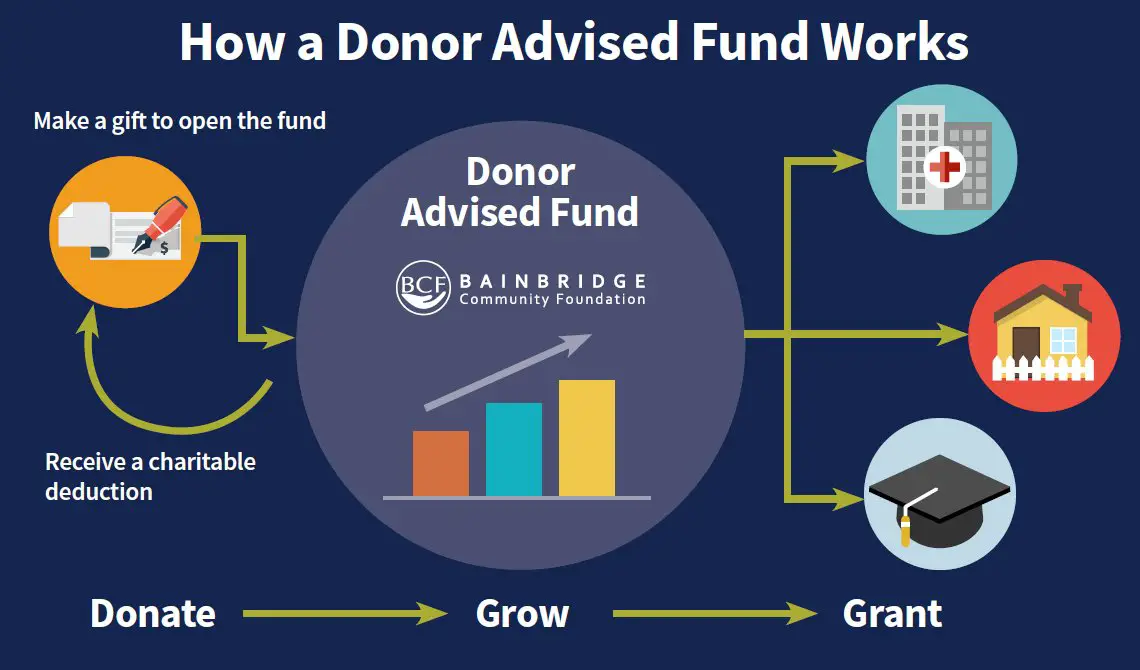Are you wondering what a gift tax is and how you can avoid it? Well, you’re in the right place! In this blog article, we’ll dive into the intricacies of gift taxes and provide you with practical tips on how to steer clear of them. Whether you’re planning to give a generous gift to a loved one or want to ensure your estate remains tax-efficient, understanding the ins and outs of gift taxes is essential. So, let’s jump right in and explore what a gift tax is and how to navigate around it.
What is a Gift Tax and How to Avoid It
Whether you are giving or receiving a substantial gift, it is essential to understand the implications of gift tax. The gift tax is a federal tax imposed on the transfer of property or assets from one individual to another without receiving fair compensation in return. In this article, we will delve into the details of what a gift tax is, how it works, and explore various strategies to minimize or avoid gift tax liabilities.
Understanding Gift Tax Exemptions
Before we explore ways to avoid gift tax, let’s first understand the concept of gift tax exemptions. The Internal Revenue Service (IRS) allows individuals to give a certain amount of gifts each year without incurring any gift tax liability. This is commonly referred to as the annual gift tax exclusion.
As of 2021, the annual gift tax exclusion is set at $15,000 per recipient. This means that you can give up to $15,000 to any person or entity without triggering gift tax consequences. Married couples can effectively double this limit by combining their individual exclusions and giving up to $30,000 per recipient.
It’s important to note that this exclusion applies to each recipient. So if you have multiple grandchildren, for example, you can gift up to $15,000 to each without incurring any gift tax. However, if you exceed this limit, you may need to report the excess amount and potentially pay gift tax.
Gift Tax vs. Estate Tax
Before diving further into gift tax avoidance strategies, it’s essential to differentiate between gift tax and estate tax. While both taxes are related to the transfer of assets, they have distinct purposes and applicability.
Gift tax is applicable when you transfer assets during your lifetime, while estate tax is imposed on the transfer of assets after your death. The purpose of both taxes is to prevent individuals from avoiding or reducing their overall tax liabilities by simply transferring assets to others.
Understanding this distinction is crucial, as some strategies to avoid gift tax may inadvertently trigger estate tax implications. It is advisable to consult with a tax professional or financial advisor to develop a comprehensive plan that considers both gift and estate tax implications.
Strategies to Minimize or Avoid Gift Tax
Now that we have a better understanding of gift tax and its exemptions, let’s explore various strategies that can help minimize or avoid gift tax liabilities.
1. Utilize the Annual Gift Tax Exclusion
One of the simplest and most common strategies to avoid gift tax is to stay within the annual gift tax exclusion limits. By gifting up to $15,000 per recipient (or $30,000 for married couples), you can transfer assets without incurring any gift tax liability. This strategy becomes particularly valuable when you have multiple individuals to gift, as the exclusion applies to each recipient.
2. Maximize Use of Gift Tax Exemption
In addition to the annual gift tax exclusion, there is a lifetime gift tax exemption. As of 2021, the lifetime gift tax exemption is set at $11.7 million per individual. This means that you can give away up to $11.7 million throughout your lifetime without incurring any gift tax. However, it’s important to note that any amount exceeding the annual exclusion will reduce your lifetime gift tax exemption.
By maximizing the use of your lifetime gift tax exemption, you can transfer significant assets without immediate tax consequences. This strategy can be particularly advantageous for individuals with substantial wealth or those looking to transfer assets to future generations.
3. Gift to Qualified Charitable Organizations
Another effective way to minimize gift tax while supporting charitable causes is by gifting assets to qualified charitable organizations. These organizations are exempt from gift tax, allowing you to transfer assets without any tax liability.
By donating assets such as cash, stocks, or real estate to qualified charities, you not only reduce your potential gift tax liability but may also benefit from income tax deductions. It’s important to ensure that the organization you choose qualifies for tax-exempt status under IRS guidelines.
4. Pay for Educational or Medical Expenses
Gifts made for qualified educational or medical expenses are exempt from gift tax, regardless of the amount. By directly paying for someone’s educational tuition or medical bills, you can provide financial support while utilizing these exemptions.
To qualify for this exemption, the payment must be made directly to the educational institution or medical service provider. It’s important to keep thorough documentation of these payments to substantiate the gift tax exemption if required.
5. Set Up and Fund a Trust
Establishing and funding a trust can be a strategic way to minimize gift tax liabilities while maintaining control over the assets. By transferring assets into an irrevocable trust, you effectively remove those assets from your estate, potentially reducing future estate tax liabilities.
There are various types of trusts available, each with its own set of rules and regulations. Consulting with an estate planning attorney or financial advisor can help you determine the most suitable trust structure for your specific needs.
6. Consider Family Limited Partnerships (FLPs)
Family Limited Partnerships (FLPs) can be an effective tool for gift tax avoidance, especially for individuals with substantial assets. With an FLP, you can transfer assets to a family partnership while retaining control as the general partner.
By gifting limited partnership interests to family members, you can effectively reduce the value of your estate and minimize gift tax implications. However, establishing and maintaining an FLP requires careful consideration and adherence to legal and financial requirements. Seeking professional guidance is crucial when exploring this strategy.
7. Utilize Spousal Gift Splitting
For married couples, gift tax laws allow for spousal gift splitting. This means that one spouse can gift assets up to the annual exclusion amount on behalf of both spouses, effectively doubling the tax-free gift amount.
To utilize spousal gift splitting, the gift must be considered a “gift-splitting” gift and both spouses must consent. This strategy can be beneficial in situations where one spouse has substantially more assets or when couples want to maximize their combined gift tax exclusions.
8. Consult with a Tax Professional
Navigating the complexities of gift tax laws and formulating an effective gift tax avoidance strategy can be overwhelming. Consulting with a qualified tax professional or financial advisor who specializes in estate planning can provide invaluable guidance and ensure compliance with IRS regulations.
Remember, gift tax laws and regulations are subject to change, so it’s essential to stay informed and adapt your strategies accordingly. By proactively planning and considering the various gift tax avoidance strategies available, you can efficiently transfer wealth, minimize tax consequences, and secure a solid financial future for yourself and your loved ones.
In conclusion, understanding the intricacies of gift tax and exploring various avoidance strategies can help you make informed decisions when transferring assets. By leveraging annual exclusions, lifetime exemptions, charitable donations, and strategic estate planning tools, you can minimize or even eliminate your gift tax liabilities. However, it’s crucial to consult with professionals to ensure compliance with tax laws and regulations and achieve the most beneficial outcomes.
Gift Tax Explained – Do You Pay Taxes On Gifted Money?
Frequently Asked Questions
Frequently Asked Questions (FAQs)
What is a gift tax and how does it work?
A gift tax is a tax imposed on the transfer of property or money as a gift, where the giver (donor) is responsible for paying the tax. It is designed to prevent individuals from avoiding estate taxes by gifting their assets before death. The gift tax applies when the total value of the gifts made by the donor exceeds a certain threshold set by the government.
What is the current gift tax exemption limit?
As of 2021, the gift tax exemption limit is $15,000 per year, per recipient. This means you can gift up to $15,000 to an individual without incurring any gift tax. If the total value of the gifts given to one person in a single year exceeds this limit, the donor is required to report the gift to the IRS. However, it’s worth noting that gifts made to spouses, qualifying charitable organizations, and certain educational or medical expenses are generally excluded from the gift tax.
How can I avoid paying gift tax?
There are several strategies you can use to minimize or avoid gift tax:
1. Utilize the annual gift tax exclusion: By keeping your gifts below the annual exclusion limit (currently $15,000), you can avoid any gift tax liability.
2. Take advantage of the lifetime gift tax exemption: The lifetime gift tax exemption allows you to gift a certain amount over your lifetime without incurring gift tax. As of 2021, the lifetime exemption is $11.7 million per person. Any gifts exceeding this amount will be subject to gift tax.
3. Use the marital deduction: Gifts made to your spouse who is a U.S. citizen are generally not subject to gift tax due to the unlimited marital deduction.
4. Pay for educational and medical expenses: Payments made directly to educational institutions or medical providers on behalf of someone else are generally not considered taxable gifts, allowing you to help others without triggering gift tax liability.
5. Create a trust: Certain types of trusts, such as irrevocable trusts, can help you transfer assets to beneficiaries without incurring gift tax. Consult with an estate planning attorney for guidance on the best trust strategy for your situation.
Are there any exceptions to the gift tax?
Yes, there are exceptions to the gift tax. Some of the common exceptions include:
1. Gifts made to a spouse who is a U.S. citizen: These gifts generally qualify for the unlimited marital deduction and are not subject to gift tax.
2. Gifts made to qualifying charitable organizations: Donations made to eligible charities are often exempt from gift tax.
3. Payments for educational or medical expenses: If you pay for someone’s educational or medical expenses directly to the institution or provider, those payments are generally not considered taxable gifts.
4. Political contributions: Gift tax doesn’t apply to donations made to political organizations or campaigns.
It’s important to note that these exceptions have specific requirements and limitations, so it’s advisable to consult with a tax professional to ensure compliance.
Can I gift more than the annual exclusion limit?
Yes, you can gift more than the annual exclusion limit. However, any gifts exceeding the annual exclusion amount will be subject to gift tax. This means you may need to report the gifts to the IRS and may be required to pay gift tax on the excess amount. Utilizing the lifetime gift tax exemption or other gifting strategies can help minimize or eliminate gift tax liability.
Do I need to file a gift tax return?
You generally need to file a gift tax return if any of the following situations apply:
1. You’ve made gifts to individuals that exceed the annual exclusion limit ($15,000 per recipient in 2021).
2. You’ve made gifts to a non-U.S. citizen spouse that exceed the annual exclusion for gifts to non-citizen spouses ($159,000 in 2021).
3. You’ve made gifts of future interests, such as a gift of a future right to income or property.
4. You’ve split gifts with your spouse, meaning you both consent to gift splitting.
Filing a gift tax return doesn’t necessarily mean you’ll owe gift tax. It is primarily used to keep track of your total lifetime gifts and determine if any tax is due.
What are the consequences of not reporting gifts?
Failing to report gifts that exceed the annual exclusion limit or meet other reporting requirements can have various consequences. These may include:
1. Late filing penalties: The IRS can impose penalties for failing to file a gift tax return on time, which can increase over time.
2. Gift tax assessment: If the IRS discovers unreported gifts, they may assess gift tax on the unreported amounts, subjecting you to potential penalties and interest.
3. Limitation of the lifetime gift tax exemption: Failing to report gifts accurately can result in a reduction of your lifetime gift tax exemption, making it more likely that you’ll owe gift tax in the future.
To avoid these consequences, it’s essential to understand the gift tax rules and comply with reporting requirements.
Can I gift property instead of money without incurring gift tax?
Yes, you can gift property instead of money without incurring gift tax. The value of the property will be considered for gift tax purposes. If the fair market value of the property exceeds the annual exclusion limit or your available lifetime exemption, you may be subject to gift tax. It’s important to obtain proper appraisals and consult with a tax professional to determine the value and potential tax implications of gifting property.
Final Thoughts
In conclusion, understanding what a gift tax is and how to avoid it is crucial for anyone interested in gifting assets to loved ones without incurring unnecessary taxes. By staying within the annual exclusion limit, currently $15,000 per recipient, individuals can gift without triggering any gift tax obligations. Additionally, utilizing the lifetime exemption, which is $11.7 million for 2021, allows for larger gifts without being subject to gift tax. Careful planning, such as spreading larger gifts over multiple years or utilizing certain exemptions for educational or medical expenses, can further help individuals avoid gift tax liabilities. Always consult with a qualified tax professional for personalized advice in navigating gift tax regulations.



